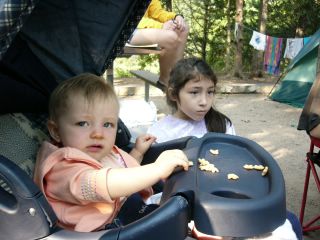That got me thinking about “those groups” – Masons, Elks, Lions, Rotarians, Optimists, etc. – and why my generation really isn’t that interested in them.
Yesterday, on the drive back from
I don’t know much of the history of fraternal organizations like the Masons or Elks, but I’ll bet that many of those lodges were founded by returning GIs. It seemed to be a theme with those men in the book. They had experienced intense esprit de corps during the war – situations in which their lives were, literally, in their buddy’s hands. Brokaw tells stories of men carrying each other through German POW camps so that the weaker wouldn’t be shot as a straggler. About one medic who won the Congressional Medal of Honor for fighting off a wave of Japanese soldiers alone, with one hand, in an exposed position, while the other hand held aloft a bag of plasma for a wounded officer.
After the war, more than 12 million GIs came home and, suddenly, in most cases, they were separated from that camaraderie. Whether because most of their buddies died in battle or lived in other parts of the country or simply separated themselves from memories of the war on purpose, they went from eating, sleeping and fighting with buddies to no buddies at all. This is just my hunch, but I’ll bet that’s why many of them joined fraternal orders.
Now, consider a young man from my generation. Likely growing up in a suburb, or, more likely, several suburbs. His extended family lives in another city. As their family and salaries grows, his parents may move to different school districts or attendance zones throughout his schooling. At school, he might be involved in some clubs or activities, but not necessarily the same clubs every year, or with the same classmates. He may experience some camaraderie in, say, a team sport. But, unless he has a great coach, the team’s teens see themselves like the pros they model – each a free agent looking out for his own good. The young man goes to college and finds the same level of mildly-intimate friendship in a fraternity or Bible study. But these groups, without any clear mission or opposition, don’t produce the kind of esprit de corps in which members depend on each other. The young man graduates and finds a job. Then another job. Since companies are likely to
I don’t really have an answer for all this and I’m not advocating that every guy my age go out and join the nearest Elks Lodge. I’m not doing it. But I just see this difference in generations. My generation has it easier. Some of my contemporaries are fighting overseas still. I know some of them who are. But my entire generation hasn’t gone to war like the Greatest Generation did. And though I don’t envy their experiences in war, I see that those hardships made them stronger people, equipped them to build a stronger nation of strong communities. And made their friendships stronger.


